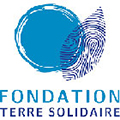2022 Forum organisers
The 6 organisers of the forum
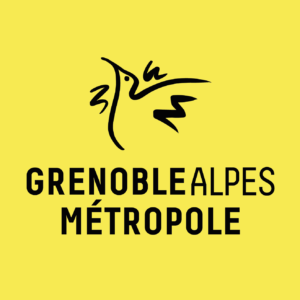
The « Well-being », a compass for metropolitan action
Facing the economic, social and environmental changes that we must collectively address, it is necessary to have measurement and steering tools dedicated to the project of a well-being based society. For the past 10 years, the Metropolis has been including in its observation and assessment tools a sustainable and territorialised Well-being indicator (IBEST). Convinced that it is at the heart of the territories that we will achieve the ecological, social and economic transition, the Metropolises have many levers in favour of social cohesion and the energy transition of our territory. They, therefore, have a responsibility to chart a different course and to implement policies in favour of the Well-being of all, regardless of their age or living place. On the territory of Grenoble, we are fortunate that all of the actors of the territory of Grenoble – Metropolis, municipalities, economic actors, universities, associations and citizens – collectively make the bet of the ecological transition. This forum for Well-being is therefore, for the Metropolis, a great opportunity to strengthen the choice of putting Well-being at the center of public policies and to strengthen exchanges with the actors of the territory, but also European and international actors.
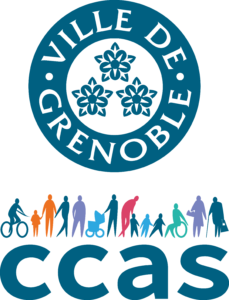
For several years now, the City of Grenoble has been building «new compasses» to observe, evaluate and steer its public policies. Questioning the idea of modernity and the dogma of economic growth has become an imperative considering the major crises, both environmental and social, and the rise in power of phenomena of fragmentation, socio-economic inequalities, discrimination.
The City of Grenoble is guided by a systemic approach that intersects the challenges of democratic, social, environmental and economic transitions. The work and the reflection on how to measure otherwise what counts passes through several concrete actions: the deployment of ecological accounting, the implementation of new ways of observing and evaluating, by going beyond the traditional indicators of public statistics, and finally, more recently, in 2022, when it is the Green Capital of Europe, the launch of a «Grenoble 2040» approach. The latter aims to build a transition trajectory through the construction of a 360° vision of the territory in social and environmental matters, inspired by the Donut theory of Kate Raworth; the approach, thus, makes it possible to draw collectively the perspectives of a desirable society in a fair and secure space.
Hosting a new edition of the International Forum for Good Living this year, to which are associated other activities labeled European Green Capital, is part of this global dynamic of a territory that rethinks its compasses and is inspired by the world.
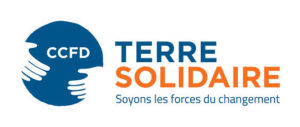
The CCFD-Terre Solidaire has been working since 1961 on the structural causes of inequality and poverty in the world. By supporting civil society actors in the South and East, and by raising awareness on international issues here in France, CCFD-Terre Solidaire is contributing to a social transformation dedicated to a fairer society, respectful of people and the environment.
CCFD-Terre Solidaire, which has been engaged for many years in a reflection aimed at “rethinking development models”, has taken up the issue of indicators of wealth to make the general public wonder about “what matters” and “what should matter” for our political representatives. The Forum will build from this work, enrich reflection and contributes to political, scientific and civic awareness. It will give a voice to 10 international partners of the association, representatives of civil society from the South and the East, who will share their expertise, and thus strenghten the networks of actors at the global level, from an advocacy and citizenship education perspective.
CCFD-Terre Solidaire will be well-represented with the presence of volunteers from different regions of France: Sylvie Bukhari de Pontual (National President), Manuele Derolez (General Delegate) and several international partners who will testify on behalf of civil society. In particular: Maria Estela Barco and Faustino Guzmán of Mexico (DESMI), Sandra Montejo Caba and Joaquín Dionicio Guzmán of Guatemala (SERJUS), Cecilia Carozzo of Argentina (FEC), Nestor Cuellar of Bolivia (CIPCA), Roger Folikoue of Togo (Social University of Togo), Method Gundidza of South Africa (Earthlore Foundation), Hans and Wallapa Van Willenswaard of Thailand (Toward Organic Asia).
CCFD-Terre Solidaire has particularly mobilised local associations and the general public in the International Forum of Well-being.

The Chair paix économique is housed within the Grenoble School of Management and mainly funded by the Foundation for Human Development and the Society, under the aegis of the Fondation de France. The research conducted by the Chair is multidisciplinary and focuses on economic peace and individual and collective well-being.
In the face of the systemic crisis we are facing (socio-economic, environmental, political), researchers cannot be content to be “helpless spectators” of the world, but must contribute through their research to equip theoretically and methodologically a radical transformation of the socioeconomic system. This position, which has been driving the Chair’s research since its inception in 2012, has led it to develop its research in a collaborative manner in collaboration with multiple stakeholders (companies, local authorities, associations, researchers from different disciplines, etc.). Very involved in a partnership way in the project of construction of indicators of sustainable territorial well-being (IBEST) and the resource center Cap Bien vivre, It is quite natural that the Chair is once again involved in the organization of the international forum for good living. The Chair shares the conviction that a systemic transformation in favor of good living can only be based on a cross of different forms of knowledge. By organizing an international scientific symposium open to all. At the forum, sitting on a scientific committee of about fifteen researchers from different disciplines (from GEM, UGA, FAIR, universities of Lyon, Geneva…), the Chair intends to contribute to the necessary contributions of knowledge on the levers of a just and sustainable society. While the field of indicators of living well is now well defined, the consideration of interdependencies – which is at the heart of the work of economic peace – raises for researchers and actors a real difficulty. This is why the scientific symposium aims to advance research on three forms of key interdependencies: economic, social and environmental interdependencies, interdependencies between people and collectives and territorial interdependencies, interscalar and historical. As a key event of the month Inequalities of the scientific council of Grenoble Capital Verte, the forum aims to accelerate the changes in the territories in favor of well-living and to contribute to the strengthening of the community of actors around these issues.
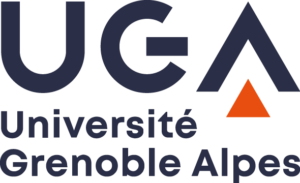 Thanks in particular to its training, research and outreach, the University of Grenoble Alpes contributes to the socio-economic and cultural development of its territory. Aware of the scientific and societal challenges of this international forum for good living, The UGA is once again associated with this event because it is fully in line with the strategy of the institution and especially in terms of social and environmental responsibility (CSR). In 2021, the UGA adopted its first CSR Master Plan. This pattern shows a strong desire to pursue an ambitious policy in the area of society and ecology.
Thanks in particular to its training, research and outreach, the University of Grenoble Alpes contributes to the socio-economic and cultural development of its territory. Aware of the scientific and societal challenges of this international forum for good living, The UGA is once again associated with this event because it is fully in line with the strategy of the institution and especially in terms of social and environmental responsibility (CSR). In 2021, the UGA adopted its first CSR Master Plan. This pattern shows a strong desire to pursue an ambitious policy in the area of society and ecology.
Built on a participatory approach, this document sets out the objectives and actions of the UGA to reduce greenhouse gas emissions through the use of local and clean energy, for the thermal renovation of university buildings, for better waste management, gentle travel, to preserve biodiversity on its campuses, to fight discrimination and for gender equality. These topics are at the heart of the debate and reflection that is being undertaken within the framework of this forum with the aim of building with the partners of the UGA sustainable strategic projects for our territory.
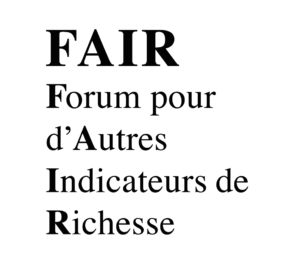 Providing a renewed vision of wealth or sustainable human development is the goal of the civil society networks that have created the FAIR collective: Forum for other indicators of wealth. To find solutions to the great social, environmental and democratic problems that arise today, it is necessary, among many other things, to change our view of wealth and its measure, and go beyond the usual economic indicators – such as gross domestic product and economic growth. But is this necessary work only a matter of experts? For years, especially in France, civil society networks, association and trade union activists, actors from the territories and researchers from several disciplines have been working on this issue. They produced substantive reflections, began to put indicators at the service of a reorientation of public policies and private decisions.
Providing a renewed vision of wealth or sustainable human development is the goal of the civil society networks that have created the FAIR collective: Forum for other indicators of wealth. To find solutions to the great social, environmental and democratic problems that arise today, it is necessary, among many other things, to change our view of wealth and its measure, and go beyond the usual economic indicators – such as gross domestic product and economic growth. But is this necessary work only a matter of experts? For years, especially in France, civil society networks, association and trade union activists, actors from the territories and researchers from several disciplines have been working on this issue. They produced substantive reflections, began to put indicators at the service of a reorientation of public policies and private decisions.
They have gathered in a cooperation network called FAIR, Forum for Other Indicators of Wealth. The Forum has three working orientations:
Link and capitalize on initiatives of networks, institutions and territories for the implementation of new indicators.
Contribute, through the organization of partnership events and participation in various meetings, to the invention of a governance model and its indicators at the level of societal and democratic issues.
Actively participate, and in a vision of international coherence, in national and territorial experimentation.
It is therefore quite natural that FAIR joins the organization of the International Forum for Good Living. With the aim of continuing to contribute to the linking and exchange between initiatives carried out by different actors (research, communities, associations) on the subject, and thus to the invention of new models for a society of well-being for all.
The Allies
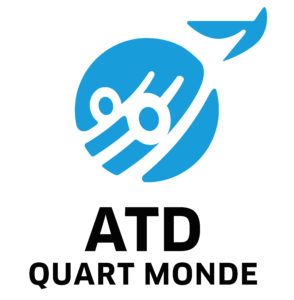
Since 1957, ATD Quart Monde has brought together those who want to work to eradicate extreme poverty and build a more just society that respects the fundamental rights and equal dignity of all. Present in more than 30 countries, ATD Fourth World is an NGO with no religious or political affiliation that leads the fight against poverty.
Today, ATD Fourth World has enthusiastically agreed to be a strategic partner of the International Forum for Good Living 2022, as its objectives fit in with those of the movement. In view of the many links between social, economic and climate justice, the issue of “Standing together for a just and sustainable society” is very topical. Beyond the workshops that ATD Fourth World will host on the study of the hidden dimensions of poverty and on the experiment Territories Zero Long-Term Unemployed, the members of the movement will take their place in the reflections aimed in particular at rethinking the economy, building a right to a dignified and sustainable food, fighting against energy poverty or renovating our democracy to involve more citizens, in particular the most disadvantaged, in the development, implementation and evaluation of public policies.
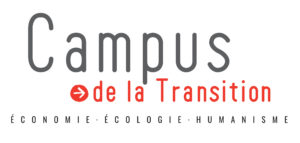 The Transition Campus is a place of teaching, research and experimentation created in 2018 by a collective of teachers-researchers, entrepreneurs and students united by a common will: to promote an ecological, economic and
The Transition Campus is a place of teaching, research and experimentation created in 2018 by a collective of teachers-researchers, entrepreneurs and students united by a common will: to promote an ecological, economic and
humanist, on the scale of the issues that are changing our century. With a ‘head-body-body’ approach based on positive pedagogy, the Transition Campus aims to train a broad audience to transform society. Based in Forges, Seine-et-Marne, the Campus is committed to anchoring its research projects in the territory. Participating in the 2022 International Forum for Good Living is part of the Transition Campus’s desire to work collectively on a new approach to wealth for a more just and sustainable society.
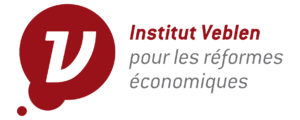 The Veblen Institute for Economic Reform is a think tank created in 2011 to promote the ecological and social transition and public policy proposals whether in the public debate or through political advocacy, in France and at the EU level. Chaired by Dominique Méda, the Institute works closely with a wide range of civil society actors and experts at national and international level.
The Veblen Institute for Economic Reform is a think tank created in 2011 to promote the ecological and social transition and public policy proposals whether in the public debate or through political advocacy, in France and at the EU level. Chaired by Dominique Méda, the Institute works closely with a wide range of civil society actors and experts at national and international level.
Our areas of expertise concern different economic aspects of the transition: economic policies for sustainability and mitigation of climate change, new indicators of wealth and well-being, financial regulation and monetary policies, the role of social innovations (common goods, local currencies, the social economy, etc.) or European trade policy. Our activities include publications (book collections and policy notes), the organization of public events, advocacy actions and the construction and facilitation of networks with civil society. We also seek to actively promote the ecological economy in teaching and research in particular with the organization of an annual prize for master’s dissertations.
We’ve done a lot of publishing and thinking about indicators of wealth and well-being. That is why it was natural for us to become partners in this new edition of the Forum.
 Ouishare questions the status quo, provokes encounters between different strata of society and paves the way for singular forms of collaboration. We rely on long time, listening and dialogue. We promote cross-fertilization – of knowledge, skills and experience – in order to disrupt power relations. Our work and missions explore three major societal issues: social precariousness, ecological transition and digitalization.
Ouishare questions the status quo, provokes encounters between different strata of society and paves the way for singular forms of collaboration. We rely on long time, listening and dialogue. We promote cross-fertilization – of knowledge, skills and experience – in order to disrupt power relations. Our work and missions explore three major societal issues: social precariousness, ecological transition and digitalization.
Ouishare is an international network federated around five strong values: collaboration, openness, attention, initiative and continuous experimentation. In France, this network has materialized in an Association law 1901 created in Paris in 2012.
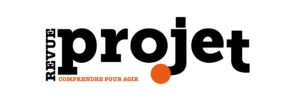 At the crossroads of the associative world and the academic world, the Revue Projet aims to combine action and reflection. Wishing to promote collective narratives, capable of giving meaning and accompanying transformations in gestation, we will produce a 60-page dossier on the occasion of the second International Forum of Well Being (to be published in April).
At the crossroads of the associative world and the academic world, the Revue Projet aims to combine action and reflection. Wishing to promote collective narratives, capable of giving meaning and accompanying transformations in gestation, we will produce a 60-page dossier on the occasion of the second International Forum of Well Being (to be published in April).
